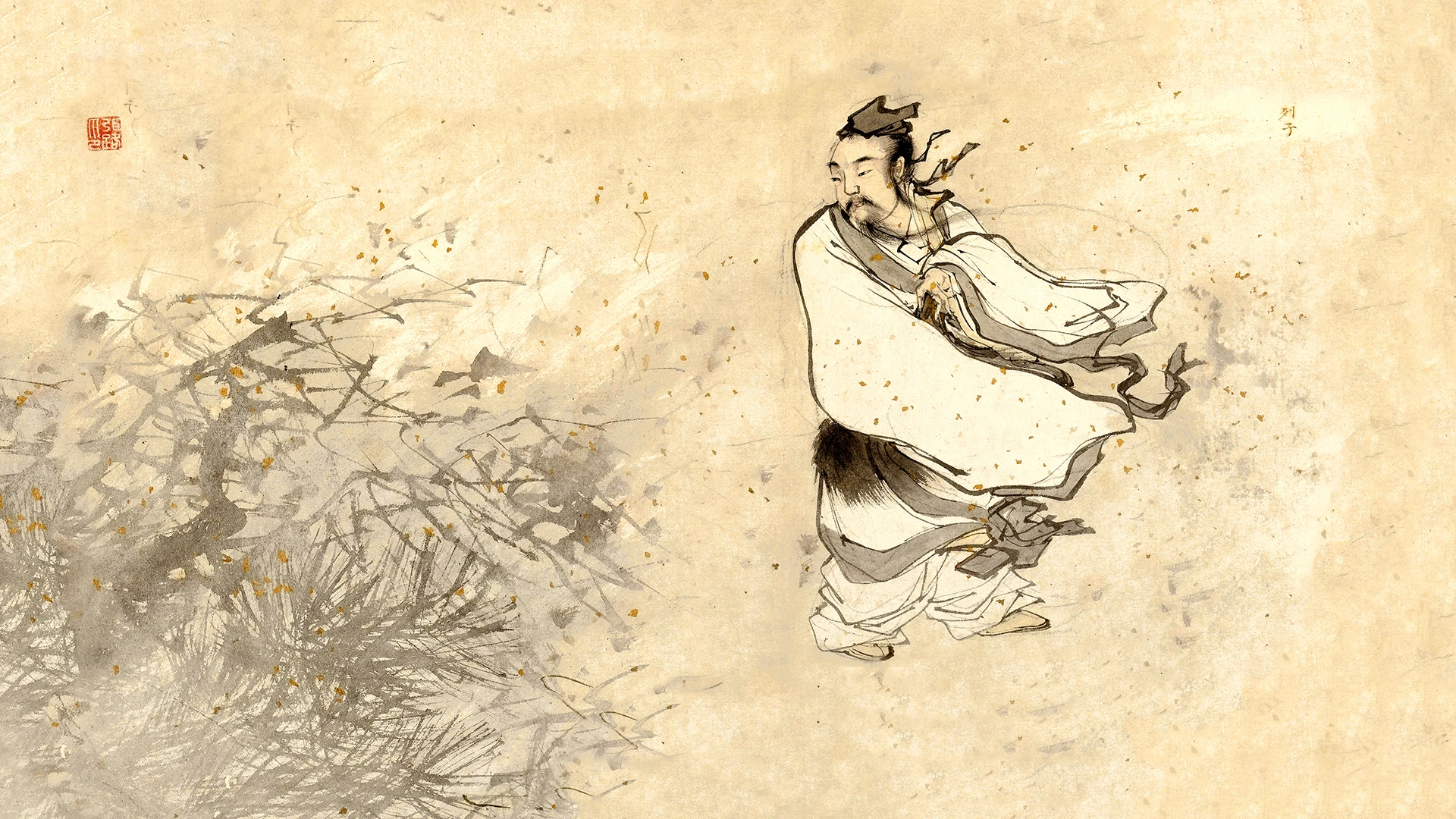At its core, Wu Wei is the art of non-action. It is a Taoist philosophy that emphasizes naturalness, simplicity, and spontaneity. In Chinese, the term “Wu Wei” literally means “non-doing,” “non-forcing,” or “non-action.” This does not mean that one should simply sit idle and do nothing; rather, it emphasizes the importance of acting in harmony with the flow of nature and allowing events to unfold naturally.
The Historical Background of Wu Wei
Wu Wei is deeply rooted in ancient Chinese philosophy and has been a fundamental concept in Taoism for over 2000 years. The concept originated during the Warring States period (475-221 BCE) when many philosophers were searching for ways to bring order and harmony to society. It was during this time that Lao Tzu, believed to be the founder of Taoism, wrote the classic text “Tao Te Ching,” which introduced many key principles of Taoist philosophy including Wu Wei.
The Importance of Wu Wei in Chinese Philosophy
Wu Wei is an essential part of Taoism – a philosophical system that guides people on how to live their lives in accordance with nature. According to Taoist beliefs, everything in nature has its own natural course and rhythm – from plants growing towards sunlight to water flowing downhill.
Similarly, all human beings have their own natural path they should follow. When we force things against their natural flow or try too hard to control outcomes we create resistance which leads us further away from our goals.
Wu wei teaches us how to let go of our need for control and work with our environment rather than against it. By cultivating an attitude of non-judgmental observance and acceptance toward ourselves and our surroundings, we can achieve a state of flow where our actions become effortless and natural.
Wu Wei is an ancient Taoist philosophy that emphasizes the art of non-action. Its focus on naturalness, simplicity, and spontaneity have made it an important part of Chinese philosophy for over 2000 years.
By living life in accordance with nature and cultivating a mindset of non-judgmental observance and acceptance, we can achieve a state of flow where our actions become effortless and natural. In the following sections, we will delve deeper into the meaning of Wu Wei and explore how to practice it in daily life.
The Meaning of “Non-Action”
Wu Wei, or “non-action,” is a central concept in Chinese philosophy that emphasizes the importance of letting things unfold naturally without external interference. At its core, Wu Wei is about finding harmony with the world and accepting things as they are, without attempting to change them.
It does not mean doing nothing or being lazy; rather, it refers to a state of mind where one’s actions are aligned with the natural flow of the universe, rather than forced or contrived. In Taoist philosophy, Wu Wei is associated with water – it flows naturally and effortlessly over obstacles in its path without resistance.
Similarly, when we adopt a Wu Wei attitude towards life, we allow ourselves to adapt to changing circumstances rather than fighting against them. By letting go of our need for control and surrendering ourselves to the present moment, we can experience greater peace and tranquility.
The Role of Intuition and Spontaneity in Wu Wei
At the heart of Wu Wei lies intuition – the ability to sense what needs to be done without having to consciously think about it. This intuitive knowledge comes from a deep understanding of oneself and one’s surroundings.
By cultivating awareness and mindfulness through practices such as meditation or tai chi, individuals can tap into this intuitive wisdom that enables them to act spontaneously and effortlessly. Spontaneity is another key aspect of Wu Wei that is closely linked to intuition.
When we act spontaneously, our actions are unencumbered by preconceived notions or agendas; instead, they arise naturally from within us based on our intuitive understanding of the situation at hand. This allows us to act quickly and decisively while remaining aware and attuned to our environment.
The Relationship between Wu Wei and Taoism
Wu Wei is intricately tied to Taoist philosophy, which espouses living in harmony with the natural world and embracing the inherent balance between opposing forces. Taoism emphasizes the importance of finding one’s place in the cosmic order, rather than attempting to dominate or control it.
By adopting a Wu Wei mindset, individuals can better align themselves with this natural order and avoid working against it. In Taoist thought, Wu Wei is considered to be the highest form of action, as it allows individuals to act in accordance with their true nature without being influenced by external factors.
It involves letting go of preconceived notions and allowing our actions to arise naturally from within us. This notion of non-action is also reflected in other aspects of Taoist philosophy, such as wu-wei-zi-ran (“doing nothing but leaving nothing undone”).
Overall, Wu Wei represents a fundamental shift in our approach towards life. By cultivating intuition and embracing spontaneity while letting go of our need for control, we can experience greater peace and harmony with ourselves and the world around us.
Cultivating Mindfulness and Awareness
Wu Wei emphasizes the importance of being present in the moment, without worrying about the past or future. The practice of mindfulness and awareness can help individuals cultivate this sense of presence.
Mindfulness involves paying attention to one’s thoughts, feelings, and surroundings with curiosity and acceptance. Awareness involves being conscious of one’s actions and behaviors, as well as the impact they have on others.
One way to cultivate mindfulness is through meditation. By focusing on the breath or a mantra, individuals can train their minds to stay present and focused.
Another way to practice awareness is by keeping a journal or reflecting on one’s experiences each day. By becoming more mindful and aware, individuals can begin to understand their thoughts and feelings better.
They can learn how to respond instead of react to situations in their lives. Cultivating these practices can also help reduce stress levels and increase overall well-being.
Letting Go of Attachments and Desires
The concept of non-attachment is central in Wu Wei philosophy. It teaches that letting go of attachments and desires allows an individual to live more freely without being controlled by these external factors.
Attachment refers to anything that an individual holds onto tightly, whether it be material possessions or ideas they identify with. To let go of attachments, it’s important first to identify what you are attached to in your life.
This could be something physical like a job or relationship, or it could be an emotion like anger or jealousy. Once identified, try letting go by accepting impermanence.
Everything changes; nothing stays the same forever; hence there is no point clinging onto things as they will change sooner or later anyway. Wu Wei teaches that by letting go of attachments individuals can become less burdened by worries concerning their possessions or status in life; this freedom ultimately leads them closer towards inner peace.
Embracing Simplicity and Humility
Embracing simplicity is a way of living that focuses on reducing the material possessions in one’s life. By keeping things simple, individuals can focus more energy on developing their inner selves rather than chasing after external pleasures.
Simplicity also fosters humility. By not having more than you need or accumulating wealth, individuals can learn to be content with what they have and appreciate the simpler pleasures in life.
Wu Wei teaches that by embracing simplicity and humility, individuals can achieve a sense of harmony with their surroundings. It encourages people to lead simple lives without the burden of excess possessions, which can lead to feelings of stress or anxiety.
In addition to this, being humble prevents an individual from becoming arrogant or attached to their ego. When one learns how insignificant they are in this vast universe, it helps them develop a deeper appreciation for others as well as themselves.
Applying Wu Wei principles in daily life involves cultivating mindfulness and awareness, letting go of attachments and desires and embracing simplicity and humility. These practices help individuals live more fulfilling lives by allowing them to be present in the moment without worrying about past or future events.
By embracing these concepts regularly, individuals can develop greater self-awareness which helps them become less reactive towards situations in their lives. Cultivating these principles also allows one not only to reduce stress levels but also leads them towards personal growth.
One should remember that applying Wu Wei principles is challenging; however, it’s worth it as it ultimately results in inner peace and fulfillment. Therefore integrating wu-wei principle into one’s daily routine is essential for a better living experience.
Benefits of practicing Wu Wei
Increased sense of peace and calmness
One of the major benefits of practicing Wu Wei is an increased sense of peace and calmness. By letting go of attachments and desires, individuals can experience a greater sense of inner peace. Instead of constantly striving for more, individuals who practice Wu Wei learn to appreciate what they have in the present moment.
This mindset can lead to reduced levels of stress and anxiety, allowing individuals to be more present and mindful in their daily lives. Furthermore, by embracing simplicity and humility, individuals who practice Wu Wei often experience a shift in perspective.
They come to realize that material possessions or external achievements are not the source of true happiness or fulfillment. This realization can be incredibly liberating, allowing individuals to let go of any self-imposed pressures to conform to societal expectations or keep up with others.
Improved decision-making skills
Another benefit of practicing Wu Wei is improved decision-making skills. By cultivating mindfulness and awareness through non-action, individuals become better equipped to make decisions that align with their true selves. When we are able to step back from our impulses and desires, we gain a greater understanding of our values and priorities.
Moreover, by trusting our intuition and embracing spontaneity, we become more confident in our decision-making abilities. Rather than overthinking every choice or relying solely on external factors such as societal norms or peer pressure, we learn how to make decisions that feel authentic and aligned with our inner wisdom.
Enhanced creativity
Practicing Wu Wei can enhance creativity. By letting go of the need for control or perfectionism, individuals open themselves up to new possibilities and ideas.
When we are not attached to specific outcomes or results, we are free to explore new avenues without fear of failure. Furthermore, by embracing spontaneity and intuition in creative pursuits, individuals may tap into a deeper, more authentic aspect of themselves.
This can lead to a greater sense of fulfillment and satisfaction in creative endeavors. By releasing any attachment to external validation or recognition, individuals may find that their creativity flourishes in unexpected ways.
The benefits of practicing Wu Wei are numerous and significant. From an increased sense of peace and calmness to improved decision-making skills and enhanced creativity, Wu Wei offers a way to live a more fulfilling life.
While the journey towards non-action may be challenging at times – requiring patience, self-reflection, and trust – the rewards are truly transformative. By incorporating Wu Wei into our daily routines in small ways, we can gradually shift our perspective towards greater simplicity, humility, and mindfulness.
Conclusion
Wu Wei as a Way to Live a Fulfilling Life
At its core, wu wei encourages us to let go of our desires and attachments, and instead embrace the present moment with a sense of mindfulness, simplicity, and humility. By practicing non-action, we learn to trust our intuition and let life unfold as it should. This leads to a greater sense of peace and contentment in our lives.
Through the practice of wu wei, we learn to live in harmony with the natural world around us. We become more attuned to our inner selves and our surroundings.
We are able to act spontaneously without judgment or fear, which allows us to fully engage with the world around us. This ultimately leads to a more fulfilling life.
Challenges in Practicing Wu Wei
While the benefits of practicing wu wei are numerous, it can be difficult to fully embrace this philosophy. In today’s fast-paced world, we are often encouraged to do more and achieve more at any cost.
This can make it hard for us to slow down and trust in the natural flow of life. Additionally, letting go of our desires can be challenging for many people.
We are conditioned from an early age that success is measured by material possessions or worldly achievements. But wu wei teaches us that true success comes from within ourselves – through cultivating inner peace and contentment.
How to Incorporate Wu Wei into Your Daily Routine
Incorporating wu wei into your daily routine requires patience and dedication. Many people find it helpful to start small – perhaps by taking five minutes each day for mindfulness meditation or simply observing their surroundings without judgment. Another way to incorporate wu wei is by simplifying your life as much as possible.
Try decluttering your home or workspace so that you can focus on what truly matters. Learn to let go of things that no longer serve you and embrace the present moment with a sense of openness and curiosity.
Ultimately, practicing wu wei is about cultivating a way of life that is in harmony with our inner selves and the world around us. It may take time and effort, but the rewards are well worth it – in terms of greater peace, contentment, and fulfillment in all areas of life.




























































